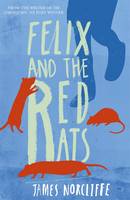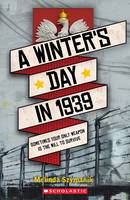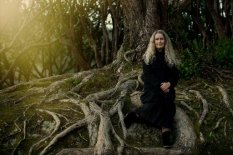Children’s author Melinda Szymanik posted this on her blog this morning, and I immediately wanted to repost it. Melinda is the author of many wonderful books, most recently Fuzzy Doodle, illustrated by Donovan Bixley, which is still in my top 10 children’s books for this year.
—
 Why New Zealand literature is necessary…
Why New Zealand literature is necessary…
My parents were immigrants. World War 2 pushed them out of their home country Poland and brought them, via a truly circuitous route, to New Zealand. I was born here about seven years after their arrival.
My Polish heritage informed so much of my early life. The food we ate, the people we socialised with, the traditional folk dancing I learned, the national costume I owned and sometimes wore. To my regret, I didn’t learn the language. In my tender years I didn’t appreciate the value of doing so. I found it hard. And I eagerly embraced the language of my peers (I love the English language. We are always doing gymnastics together). But at school I enjoyed having this exotic Eastern European background. I was the only Polish kid in class. It felt special. So I wore it with pride.
I was a booky kid. I read a lot in school right from the beginning. I hung out at libraries all the time. The Lion,The Witch and The Wardrobe (although I started with The Silver Chair after picking up the hardback for a bargain price at a school fair), The Famous Five, Paddington Bear, The Moomintrolls, Baron Munchausen, The Moon in the Cloud, The Wolves of Willoughby Chase, Little House on the Prairie, Nancy Drew, Trixie Belden, The Hardy Boys, The Hobbit, The Weirdstone of Brisingamen, Flambards, The Outsiders, A Wizard of Earthsea, The Dark is Rising, Fairy Tales, The Odyssey, Robin Hood, King Arthur and the Knights of the Round Table and many, many, many more. Are you sensing a theme to my reading yet?
The only New Zealand literature I was exposed to as a child was what the School Journal provided. There was no Margaret Mahy or Joy Cowley, Maurice Gee, Fleur Beale or David Hill back then. I read one short story by Witi Ihimaera and didn’t understand it at all, because it was a single drop in a vast ocean of the European and US literary heritage I was consuming in vast quantities.
It became difficult to sustain the atmosphere of Polishness as we all grew up. We had to get on with our Kiwi lives. We didn’t forget but wore it more on the inside than the outside. And the pre-war Poland of my parent’s experience was unreachable, existing in memory but no longer in reality. And my empathy and understanding of people and the world learned through books filtered everything through a foreign lens. What is it to be a New Zealander? I’m still figuring it out. I can’t help always feeling a restlessness that can’t be answered, predicated as it is on a nostalgia for a lost heritage that can never be recovered, and a literary education built on cultures to which I can never belong.
If you want New Zealand children to understand their own culture, to feel it in their bones, then it must be provided to them in their literature. It helps ground them, makes them feel strong in their roots, connects them to this place and to each other. It reflects their experience back at them, reinforcing its value. We must embrace our own literature. It is a tremendous gift that must be protected and encouraged. We can’t just measure it as a product with sales, because its impact is lifelong, far reaching and life changing. It needs to be everywhere and we need to pay it way more respect then it gets now.
by Melinda Szymanik
Melinda blogs here regularly about children’s writing and other things as they arise. Some great pieces recently include her post on getting through the mid-career doldrums and how to stay sane/hydrated/not-exhausted during launch week.

 This book is one to treasure. From the first squiggle to the final page, Fuzzy the doodle leads you on a playful word adventure as he grows…and grows…and grows.
This book is one to treasure. From the first squiggle to the final page, Fuzzy the doodle leads you on a playful word adventure as he grows…and grows…and grows.






